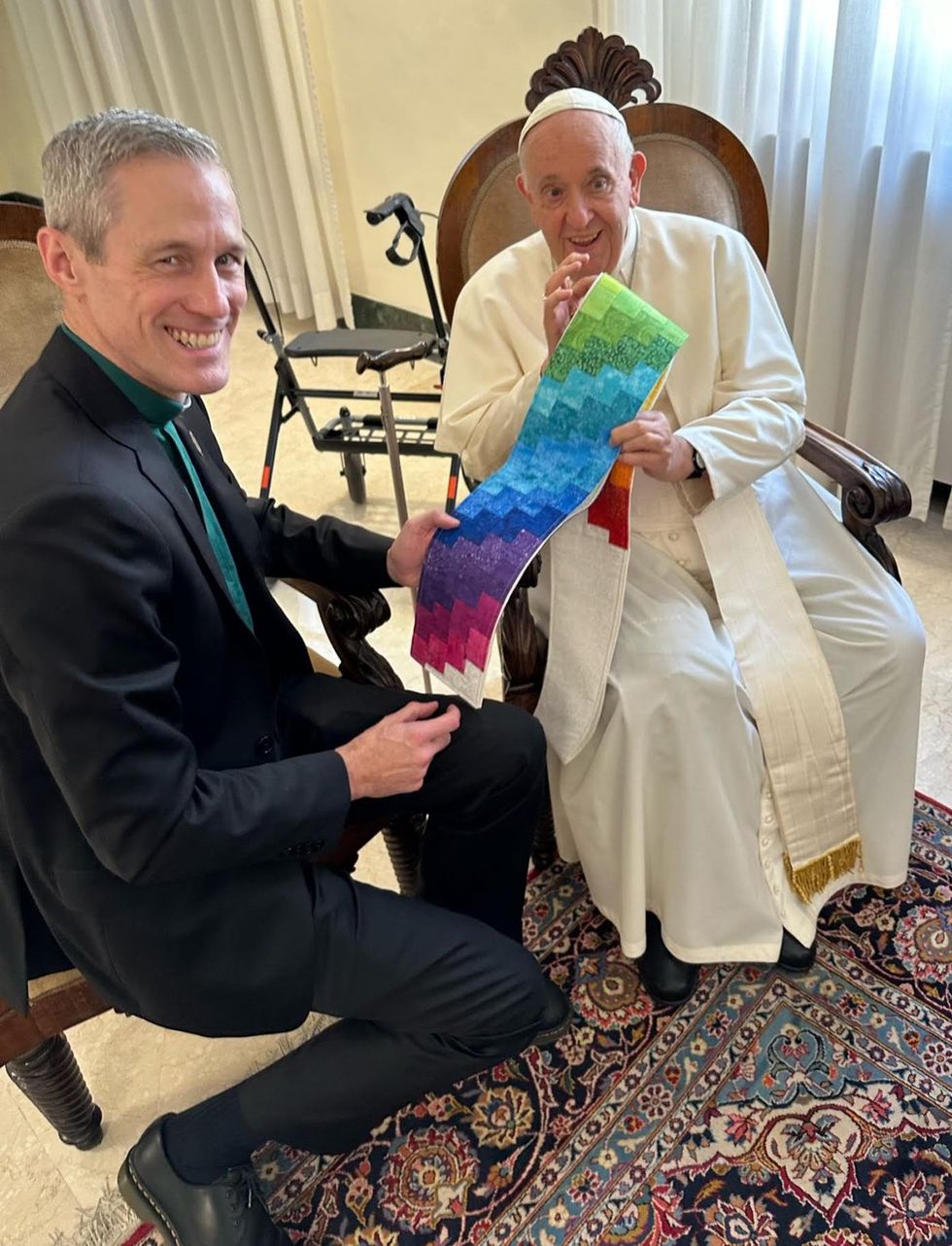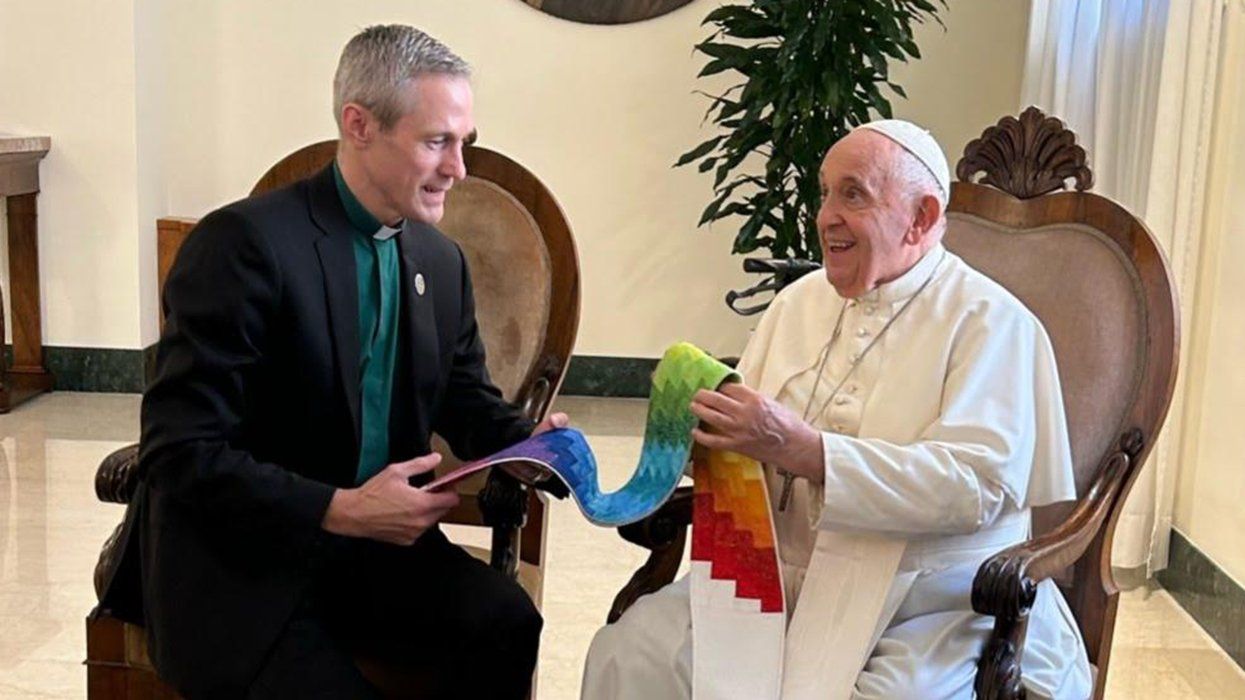Every pope leaves a mark on history. Even for those not Catholic, the Pope's influence ripples through our lives, shaping global discourse and societal norms.
I write this not as a Catholic but as a gay Lutheran deacon. My denomination emerged from a theological movement that sought a more direct experience of God's grace, diverging from the Roman Catholic Church. I also belong to a social movement that has historically clashed with many religious institutions, particularly the Catholic Church, on matters of sexuality and gender.
Despite these differences, I cannot deny the profound impact Pope Francis had on the Catholic Church, global culture, and the LGBTQ community.
Upon his election, GLAAD highlighted Pope Francis's past opposition to marriage equality in Argentina, where he had advocated for civil unions as an alternative. However, his now-famous "Who am I to judge?" comment regarding gay seminary students signaled a potential shift in tone, even if it didn't immediately translate to changes in official church doctrine. During his visit to the United States, GLAAD analyzed his words and actions, recognizing his gestures of inclusion and instances where he fell short of full acceptance.
Significantly, when asked to condemn laws that criminalize, imprison, and execute LGBTQ individuals, he voiced his opposition. We expressed our gratitude for this action in person while urging him to do and say more to protect LGBTQ people. His response, "Just give me the messaging points, and I'll figure out when and how I can say them," revealed a willingness to engage and learn.

Yet, Pope Francis's tenure also witnessed the release of Vatican documents that caused significant pain and setbacks for LGBTQ acceptance. For instance, the Congregation for the Doctrine of the Faith issued a Responsum ad dubium in 2021, which explicitly stated that the Church could not bless same-sex unions, asserting that "God does not and cannot bless sin." Furthermore, pronouncements from the Vatican, particularly those concerning "gender ideology," framed transgender identities and experiences as a threat to human dignity, creating further division and hurt. Specifically, in documents and speeches, there were assertions that "gender theory" was an attempt to erase the differences between men and women and that this was a dangerous and harmful trend.
Pope Francis's greatest strength lay in his pastoral care. When interacting directly with LGBTQ people, he listened intently, demonstrating genuine compassion and a desire to alleviate their suffering. His personal pastoral approach contrasted sharply with the more rigid and abstract pronouncements emanating from the Vatican.
The disconnect arose when LGBTQ issues were treated as abstract concepts rather than lived realities. Pope Francis, a deeply pastoral figure, operated within the Vatican, an institution often criticized for its hierarchical power structures and resistance to change. Those around him, entrenched in traditional doctrines, were usually successful in depersonalizing LGBTQ experiences. Transgender people were reduced to "ideology," and the loving relationships of same-sex couples were dismissed as "sin."
Despite these challenges, Pope Francis found ways to transcend the Vatican's institutional limitations. His appointments of more progressive cardinals, bishops, and women in leadership positions will have lasting consequences. his personal hospitality towards LGBTQ pilgrims, coupled with his enduring friendships with openly LGBTQ people, helped to dispel the misinformation surrounding him. He showed a willingness to learn, admit mistakes, and even seek forgiveness.
When future generations reflect on consequential popes, I hope they remember Francis. He leaves behind a complex but undeniable legacy in the Roman Catholic Church. This legacy will endure, even amidst potential efforts to diminish it. His willingness to engage, even imperfectly, with the LGBTQ community marks a significant chapter in the ongoing dialogue between faith and inclusion.
Deacon Ross Murray is Vice President at the GLAAD Media Institute, providing education, training, consulting, and expertise for LGBTQ and allied community members, the media industry, corporations, and advocacy organizations. Ross is a Deacon in the Evangelical Lutheran Church in America, with a calling to LGBTQ advocacy. He is a founder and director of The Naming Project, a faith-based camp for LGBTQ youth and their allies. He has written two books, Made, Known, Loved: Developing LGBTQ-Inclusive Youth Ministry and The Everyday Advocate: Living Out Your Calling to Social Justice.
Voices is dedicated to featuring a wide range of inspiring personal stories and impactful opinions from the LGBTQ+ and Allied community. Visit Advocate.com/submit to learn more about submission guidelines. We welcome your thoughts and feedback on any of our stories. Email us at voices@equalpride.com. Views expressed in Voices stories are those of the guest writers, columnists and editors, and do not directly represent the views of The Advocate or our parent company, equalpride.















Charlie Kirk DID say stoning gay people was the 'perfect law' — and these other heinous quotes
These are some of his worst comments about LGBTQ+ people made by Charlie Kirk.